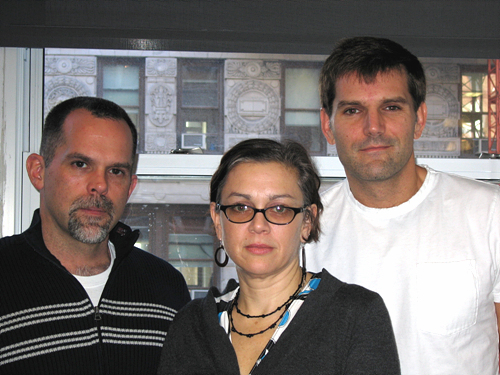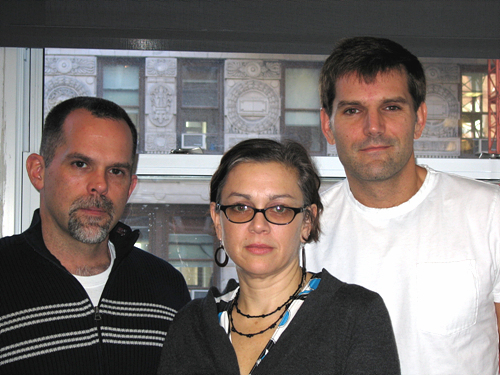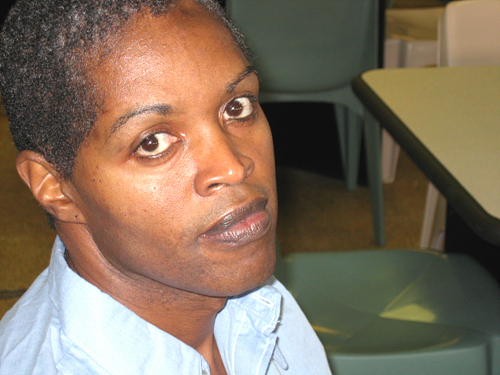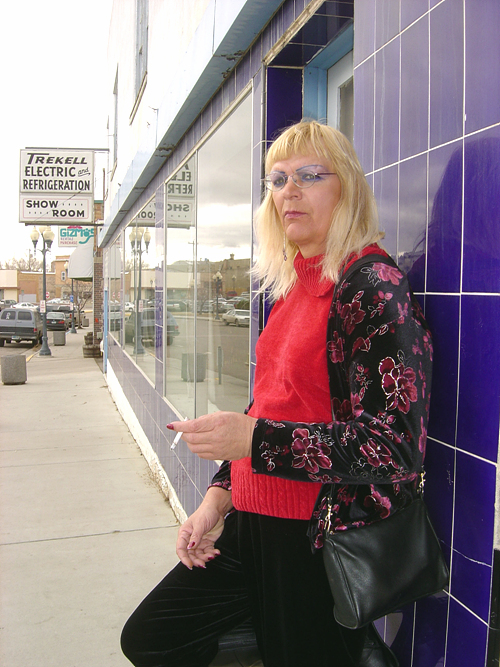10th(2008)
- Opening Film (7)
- New currents (29)
- Queer Rainbow (16)
- Girls on Film (20)
- Asian Short Film & Video Competition (19)
- Focus on PENG Xiaolian (5)
- Open Cinema (6)
- Female Bodies: Biopolitics and Body Politics (11)
- Fantastic Women\'s Cinema: Women in Paraxis (9)
- Curtain Call (11)
- 97-07 Women\'s Cinema in Korea (11)
- Documentary Ock Rang Award (1)
- Media Workshop for Women Migrants (1)
Cruel and Unusual
Janet BAUS, Dan HUNT
- USA
- 2006
- 65min
- Beta
- color
- Documentary
SYNOPSIS
Cruel and Unusual is a documentary about the civil rights and lives of male to female transsexuals who are held in male prisons and poses many questions through candid and courageous interviews given by transsexual women and the piercing questions set forth by legal experts. According to a strictly biological definition, pre-op transsexual women are held in male prisons. Many transsexual women have lost their opportunities for education, jobs, and in some cases even their families, due to transphobia, and the rate of such women being held in prisons is rising, but the Department of Corrections is indifferent to the violence, rape, and overly harsh punishment that they are exposed to. These inmates have a higher risk of becoming victims of hate crimes or rape than other inmates. Furthermore, the Department of Corrections denies them hormone treatment and locks them up in solitary confinement. They lead difficult lives amidst emotional and physical anxiety. They protest for the right to receive just punishment not exceeding their crimes and demand medical treatment, but their requests are accepted in only a few places. Should they be confined in a women’s prison, or should there be a separate prison for transsexual women? The film was shot over a period of three years and the women who agreed to be interviewed go through various ups and downs throughout the making of the film. Three of them are released from prison, with two unable to adapt to society and either living on the streets or being locked up in prison again, while the other strives to find a better life. (CHO Hye-young)
PROGRAM NOTE
Cruel and Unusual is a documentary about the civil rights and lives of male to female transsexuals who are held in male prisons and poses many questions through candid and courageous interviews given by transsexual women and the piercing questions set forth by legal experts. According to a strictly biological definition, pre-op transsexual women are held in male prisons. Many transsexual women have lost their opportunities for education, jobs, and in some cases even their families, due to transphobia, and the rate of such women being held in prisons is rising, but the Department of Corrections is indifferent to the violence, rape, and overly harsh punishment that they are exposed to. These inmates have a higher risk of becoming victims of hate crimes or rape than other inmates. Furthermore, the Department of Corrections denies them hormone treatment and locks them up in solitary confinement. They lead difficult lives amidst emotional and physical anxiety. They protest for the right to receive just punishment not exceeding their crimes and demand medical treatment, but their requests are accepted in only a few places. Should they be confined in a women’s prison, or should there be a separate prison for transsexual women? The film was shot over a period of three years and the women who agreed to be interviewed go through various ups and downs throughout the making of the film. Three of them are released from prison, with two unable to adapt to society and either living on the streets or being locked up in prison again, while the other strives to find a better life. (CHO Hye-young)
Director
-

Janet BAUSJanet BAUS
Janet Baus is a producer, director and editor for PBS, and independent productions; she has edited Trauma: Life in the ER (1997) and co-produced PBS documentary, After Stonewall: From the Riots to the Millenium (1999) and Dangerous Living (2006). Her work has been broadcast on Lifetime, PBS. She won Cine Golden Eagle, Gold Aurora Award, and others.
-

Dan HUNTDan HUNT
Hunt has been creating award-winning programming for Public Television since the late 1980s. He has co-produced Dangerous Living (2006) and PBS documentary, After Stonewall: From the Riots to the Millennium (1999). He won Cine Golden Eagle, Gold Aurora Award.
Credit
- ProducerReid WILLIAM
- Cinematography Slawomir GRUNBERG
- Editor Mark JUERGENS




